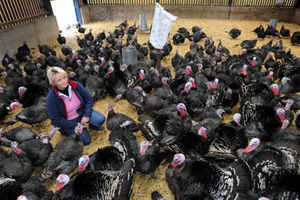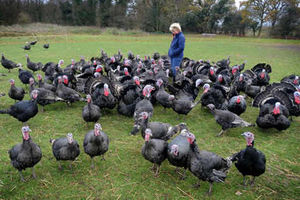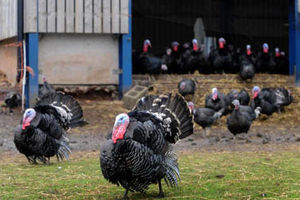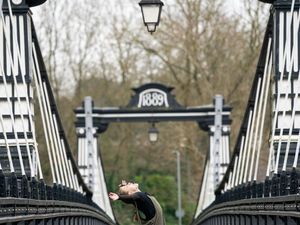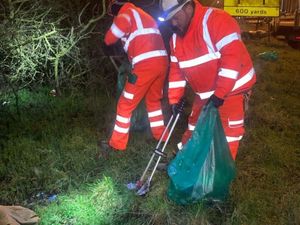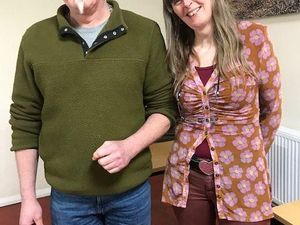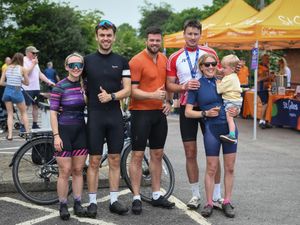Tinsel and turkeys keeping Louise busy
Louise Baines has around 300 feathered friends that follow her around her farm.
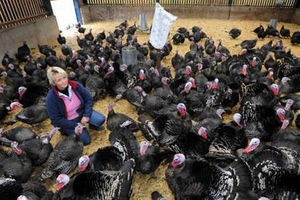
Louise Baines has around 300 feathered friends that follow her around her farm.
Toddling along on their skinny legs, the air is filled with their 'gobble, gobble' cries as the turkeys are keen to be anywhere that Louise is.
Click on the image on the right to see more pictures.
Louise, 45, runs Barts Turkeys at Home Farm in Hints, near Lichfield, with her father John Fairclough.
The 300 turkeys arrived at Louise's farm in June and they are now mature and ready to be slaughtered in time for Christmas dinner. The farm takes private orders for its turkeys, and buyers are able to visit the straw-filled barn to see the birds before they are killed, plucked and boxed up.
When Louise's parents Gill and John bought the farm in 1966 they started out growing fruit and vegetables.
However, Louise says when she left the Royal Agricultural College in Cirencester she spotted a gap in the market for free-range bronze turkeys.
"I have a flock of pedigree Charollais sheep as well as 400 commercial ewes, but I started introducing turkeys around five years ago," says Louise, who has two children Polly, 16, and Bart, 15.
"In this area there were plenty of barn-reared white turkeys but there was a gap in the market for free-range bronze turkeys.
"I think people enjoy eating meat, but they like to know that the animal has had a happy life. People come here with their grandchildren to see the birds."
When the turkeys arrive in June they are one-day-old chicks transported from Kelly Bronze hatchery in Essex, and Louise says she is keen that the turkeys are not taken anywhere again during their life.
"I want the turkeys to have the best life possible and so they are kept in a large straw-filled barn and allowed outside when they get to around nine weeks old – any earlier and they may get eaten by buzzards or foxes," says Louise, who lives in Hints. "They are fed a natural, cereal based diet and live to full maturity, which increases their flavour.
"I don't want the birds to be transported anywhere, so they die in the same place they have lived which means they don't get stressed and panicked," she says. "I do the slaughtering. It is a horrible job and I don't enjoy doing it but at least I know they have lived and died happily."
Louise says: "My parents bought the farm in the year I was born and I have grown up with it. I did my school work experience there. They used to grow soft fruit for a company called Cadbury, Typhoo and Schwepps, which made jam.
"It started to become more difficult to get pickers – other local farms in the area have to fly foreigners in to do the picking, as very few people in Britain want to do the job.
"Also, pick-your-own was dying out and that was when I decided Home Farm should become animal based." Her turkeys cost around £4.50 per pound and weigh around 15 pounds, but Louise says people are cutting back this year.
"People are asking for the smaller birds in a bid to try and save money but I've not had one person yet say they cost too much," she says. "There is a big demand every Christmas and last year I ended up selling my own and having to buy a bird."

